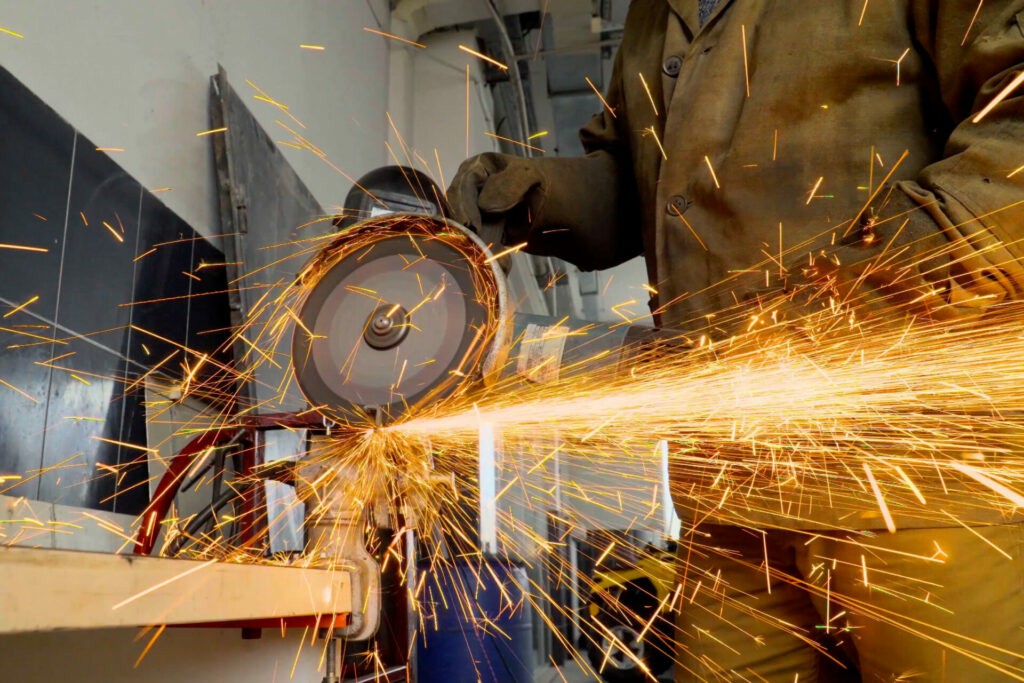Exploring the Varied Types of Abrasive Wheels: Essential Safety and Training Insights
Abrasive wheels are crucial tools in various industries, from construction to manufacturing. Understanding their types and applications is essential for ensuring safety and efficiency in the workplace.
Types of Abrasive Wheels
Abrasive wheels come in several categories, each designed for specific tasks. Here’s a breakdown of the most common types:
- Grinding Wheels: These wheels are primarily used for grinding metal and other hard materials. They come in various abrasive materials, including aluminum oxide and silicon carbide.
- Cutting Wheels: Designed for cutting metal, these wheels are thinner than grinding wheels and allow for more precise cuts. They are commonly used in construction and metal fabrication.
- Polishing Wheels: Made from softer materials, polishing wheels are used to finish surfaces and achieve a high gloss. They are commonly used in automotive, jewelry, and metalworking industries.
- Flap Discs: Consisting of multiple overlapping pieces of abrasive material, flap discs are versatile and can be used for grinding and finishing applications.
- Diamond Wheels: Best suited for cutting hard materials like concrete and stone, diamond wheels are known for their durability and effectiveness.
Abrasive Wheels Applications
Each type of abrasive wheel has its unique applications. Here’s how they are commonly used across various industries:
- Construction: Cutting and grinding wheels are extensively used for shaping construction materials, including metal beams and concrete.
- Automotive: Polishing wheels are used for refinishing car bodies, while cutting wheels can help separate parts during repairs.
- Metal Fabrication: Grinding and cutting wheels facilitate metal shaping and joining processes.
Risks Associated with Abrasive Wheels
While abrasive wheels serve many functions, they also pose significant risks when not used correctly. Some of the hazards include:
- Wheel Breakage: If an abrasive wheel is improperly mounted or subjected to excessive pressure, it can shatter, causing severe injuries.
- Overheating: Continuous use without proper cooldown can lead to overheating, which may warp the wheel or damage the material being worked on.
- Improper Mounting: Incorrectly mounted wheels can lead to vibrations, further increasing the risk of wheel failure.
- Exposure to Dust: Abrasive processes often generate dust, which can lead to respiratory issues if appropriate protective equipment is not worn.
The Importance of Proper Training
Threats associated with the use of abrasive wheels highlight the necessity of professional training:
- Abrasive Wheels Training Dublin: Comprehensive training programs available in Dublin help workers understand the types of wheels and their safe handling.
- Abrasive Wheels Certification Ireland: Obtaining proper certification is essential for compliance with safety regulations and for validating a worker's skills.
- Abrasive Wheels Safety Course Limerick: There are specialized courses in Limerick that focus on safety hazards and best practices while using abrasive wheels.
Conclusion
The safe use of abrasive wheels is quintessential in various industries across Ireland, including Dublin, Cork, Galway, and Limerick. By understanding the types of abrasive wheels, their applications, and potential risks, and emphasizing the importance of proper training and certification, businesses can reduce the likelihood of accidents and ensure a compliant and safe working environment.
For more information on certified abrasive wheels training, contact us at [email protected]. Investing in proper training is investing in workplace safety.



 349,500 Offered Certificates
349,500 Offered Certificates
 24/7 Online Training
24/7 Online Training
 Money Back Guarantee
Money Back Guarantee
 Fully Accredited Courses
Fully Accredited Courses
